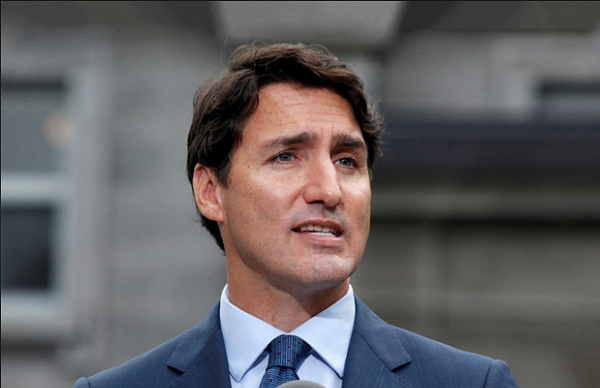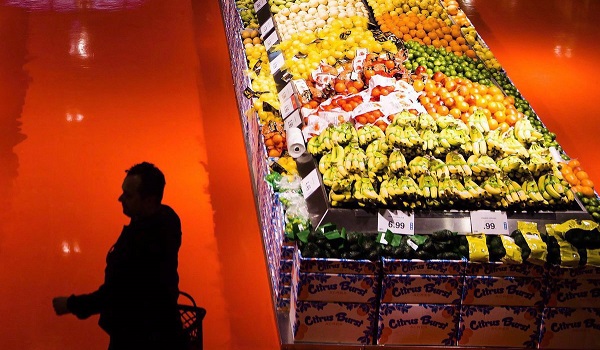Tariff response will be ‘forceful but reasonable’, Trudeau says
Prime Minister Justin Trudeau says Canada’s response to U.S. President Donald Trump’s 25-per-cent tariffs, which he has threatened to impose as early as Saturday, will be “forceful but reasonable,” and that federal and provincial governments were working on removing internal trade barriers to soften any economic blow.
In remarks on Friday morning before a meeting with his advisory council on Canada-U.S. relations, Mr. Trudeau said the country was at a critical moment, with Mr. Trump repeating this threat on Thursday to impose levies on Canadians goods, dramatically damaging the country’s economy.
“If the president does choose to implement any tariffs against Canada, we’re ready with a response — a purposeful, forceful but reasonable, immediate response,” Mr. Trudeau told reporters before the meeting convened behind closed doors in a downtown Toronto office tower. He did not detail any specific measures.
Mr. Trump’s comments on Thursday that the tariffs were coming, and that he had yet to decide whether Canadian oil would be covered, appeared at odds with statements from his own nominee for commerce secretary, Howard Lutnick, who suggested that immediate trade levies could be avoided by strengthening border measures.
Mr. Trudeau also said Friday that his Minister of Transport and Internal Trade, Anita Anand, was meeting with provincial trade ministers in the same downtown building to discuss “ambitious proposals” for removing the many trade barriers between provinces. Economists have warned that internal trade barriers cost Canada’s economy billions of dollars a year, and provincial premiers have agreed lifting them could be a way to offset the damage done by U.S. tariffs.
The prime minister said it remained unclear precisely what U.S. tariff action would look like, warning that the move would also damage the U.S. economy and undermine the collective security of the two countries.
He said the federal government has responded to the concerns Mr. Trump raised when he first threatened the tariffs: the movement of the drug fentanyl and illegal migrants across the border from Canada into the U.S. — pointing to Ottawa’s $1.3-billion border plan, unveiled late last year. He said the first new border-patrol helicopters took flight earlier this week, and new dog teams and imaging technology was being deployed to stop the flow of drugs.
He also said the border was already safe and secure and that less than 1 per cent of fentanyl and illegal crossings into the U.S. come from Canada: “We’re committed to keeping it that way.”
Mr. Trudeau also highlighted already implemented changes at border, saying they were showing results. In December, the government ended the practice of “flagpoling,” which sees temporary residents of Canada travel to the U.S. only to immediately turn around and access Canadian immigration services. Stopping this practice was saving Canada and U.S. border officials time and resources, he said.
And heightened security for visa applications, he said, has resulted in an 89-per-cent drop in illegal crossings by foreign citizens into the U.S. over the second half of last year.
“This is real progress that as the president’s commerce secretary nominee acknowledged the other day, demonstrate that we are committed to the Canada-U.S. relationship, committed to upholding the safety and security of our shared border,” Mr. Trudeau said.
Mr. Trudeau said Canada would keep making its case that trade with Canada is good for the long-term prosperity and security of the United States, noting Canada’s steel and aluminum, critical minerals and clean energy, as well as its “stable democratic institutions, shared values and the best workers in the world.”
But he also said Canada will not back down and reiterated that all of Canada’s assets could be used to respond — repeating a stance opposed by Alberta Premier Danielle Smith and Saskatchewan Premier Scott Moe, who object to any potential for an oil export ban or export tax to be used as leverage.
“If the tariffs are implemented against Canada, we will respond. We won’t relent until tariffs are removed and, of course, everything is on the table,” the prime minister said.
He also added that whatever action Canada takes would be “fair, right across the country” and that “all Canadians will share in the job of standing up for our interests and quite frankly standing up to defend the most successful trading relationship in the world.”
But he warned the road ahead could be rocky.
“Our nation could be facing difficult times in the coming days and weeks and though Canadians might be anxious and worried, I want them to know that the federal government and indeed all orders of government have their backs,” Mr. Trudeau said.
This article was first reported by The Globe and Mail












